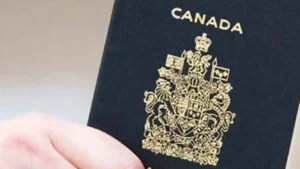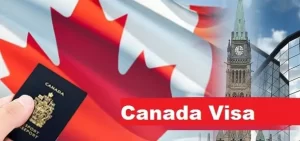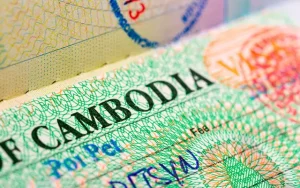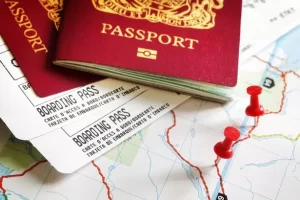
Introduction to Canadian Visas
When considering a trip to Canada, whether for tourism, study, work, or to make it your new home, understanding the types of visas available is crucial. Navigating the visa application process can be complex, but with the right information, you can find the visa that best suits your needs. TYPE OF CANADA VISA
What Is a Visa?
A visa is an official document issued by a country that allows you to enter, stay, and leave that country under specific conditions. It acts as a permit for your visit and provides the authorities with details about your stay. For Canada, this means applying for the right type of visa depending on the purpose of your visit.
Why Do You Need a Visa for Canada?
Canada has strict immigration rules that require most visitors, including tourists, students, and workers, to obtain a visa or an electronic travel authorization (eTA) before arriving. This ensures that visitors meet entry requirements and can be monitored during their stay.
Tourist Visas
Canada offers various options for tourists, depending on how long you plan to stay and your nationality. Understanding these options will help you choose the most suitable visa for your visit.
Temporary Resident Visa (TRV)
The Temporary Resident Visa (TRV) is the standard visa for those visiting Canada temporarily. It is essential for visitors from countries that are not visa-exempt.
Single Entry Visa
The Single Entry Visa allows you to enter Canada once. If you leave the country, you’ll need to apply for a new visa to return. EVISA QUESTIONS
Multiple Entry Visa
The Multiple Entry Visa permits you to enter and leave Canada multiple times within the visa’s validity period. This is ideal for frequent travelers who may need to return to Canada for various reasons.
eTA (Electronic Travel Authorization)
The eTA is a simplified entry requirement for visa-exempt foreign nationals traveling to Canada by air. It’s linked electronically to your passport and is valid for up to five years or until your passport expires.
Student Visas
If you plan to study in Canada, you’ll need a study permit. This allows you to attend designated learning institutions in Canada.
Study Permit
The study permit is crucial for anyone who intends to enroll in a Canadian educational institution. It is generally issued for the duration of your course plus an additional 90 days.
Eligibility Requirements
To be eligible, you must prove that you have been accepted by a designated learning institution, have sufficient funds to cover your stay, and intend to leave Canada after your studies are complete.
Application Process
The application process involves filling out forms, providing proof of acceptance from an institution, and demonstrating your financial capability. Biometrics may also be required.
Work Visas
Canada offers several types of work visas depending on your job and the nature of your employment.
Work Permit
A work permit allows you to work in Canada temporarily. There are different types of work permits based on the nature of your employment and your employer’s needs.
Employer-Specific Work Permit
This permit is tied to a specific employer and job. You must have a job offer and, in some cases, a Labour Market Impact Assessment (LMIA) to apply.
Open Work Permit
The Open Work Permit allows you to work for any employer in Canada, giving you more flexibility. It is typically available to spouses of skilled workers or international students.
Intra-Company Transfer Visa
This visa is for employees of multinational companies who are being transferred to a Canadian branch. It is beneficial for senior executives and specialized workers.
Business Visas
Canada encourages business professionals and entrepreneurs to contribute to its economy through various business visa options.
Business Visitor Visa
The Business Visitor Visa is for individuals coming to Canada for business activities, such as meetings, conferences, or exploring investment opportunities.
Eligibility Criteria
To qualify, you must prove that your primary place of business is outside Canada and that you will not be entering the Canadian labor market.
Application Steps
You need to provide details of your business activities, proof of financial support, and any invitations from Canadian businesses.
Start-Up Visa Program
The Start-Up Visa Program is designed for entrepreneurs who can establish a business in Canada that will create jobs and compete on a global scale.
Permanent Residency Visas
If you plan to make Canada your home, several pathways to permanent residency are available.
Express Entry Program
The Express Entry Program is a popular route for skilled workers. It is a points-based system that evaluates your skills, experience, and other factors.
Federal Skilled Worker Program
This program is for skilled workers with relevant work experience and qualifications.
Canadian Experience Class
This category is for individuals with Canadian work experience and is part of the Express Entry system.
Provincial Nominee Program (PNP)
The Provincial Nominee Program allows provinces and territories to nominate individuals based on local labor market needs.
Conclusion
Navigating Canada’s visa system can be daunting, but understanding the various types of visas available will help you choose the right one for your needs. Whether you’re visiting for a short stay, studying, working, or looking to settle permanently, there is a visa designed to facilitate your stay in Canada.
FAQs
What is the difference between a TRV and eTA?
A TRV is required for citizens of countries that are not visa-exempt and allows multiple or single entries. An eTA is for visa-exempt countries and simplifies the entry process for air travelers.
Can I apply for a Canadian visa online?
Yes, many Canadian visa applications can be submitted online. Check the specific requirements for your visa type on the official Canadian immigration website.
How long does it take to process a Canadian visa?
Processing times vary depending on the type of visa and your country of residence. It’s best to check the current processing times on the Canadian immigration website.
Do I need a visa for Canada if I have a US visa?
Having a US visa does not exempt you from needing a Canadian visa. You must apply for a Canadian visa or eTA as required.
What is the cost of a Canadian visa?
The cost varies depending on the type of visa. For accurate and updated fee information, refer to the Canadian immigration website.







